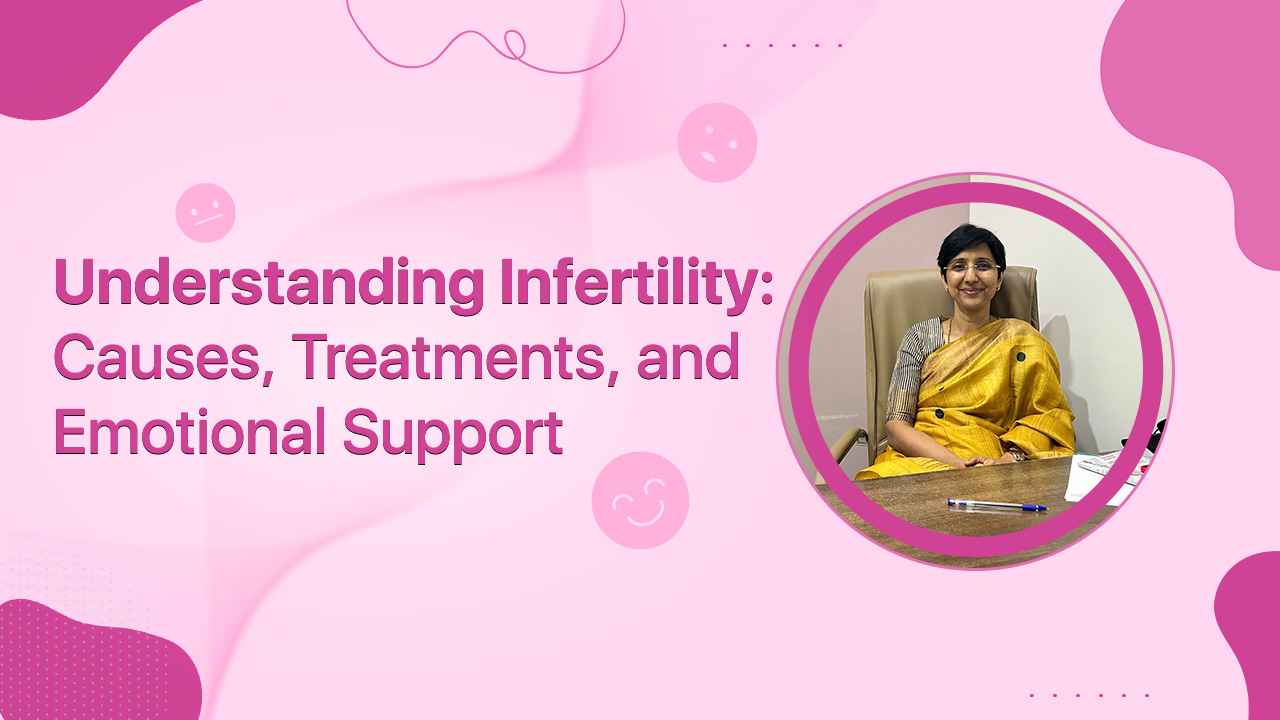Infertility is a common and often challenging issue faced by many couples. It is defined as the inability to conceive after one year of regular, unprotected intercourse. Understanding the causes of infertility, exploring available treatment options, and seeking emotional support are crucial steps for couples navigating this difficult journey.
Common Causes of Infertility
Infertility can result from a variety of factors, affecting both men and women. Understanding these causes can help in diagnosing and treating the issue effectively.
Female Infertility:
Ovulation Disorders: Conditions such as polycystic ovary syndrome (PCOS) and hormonal imbalances can disrupt ovulation.
Tubal Infertility: Blocked or damaged fallopian tubes, often due to pelvic inflammatory disease or endometriosis, can prevent the sperm from reaching the egg.
Uterine or Cervical Abnormalities: Issues such as fibroids, polyps, or structural abnormalities can interfere with implantation or increase the risk of miscarriage.
Age: Fertility declines with age, particularly after the age of 35, due to a decrease in the number and quality of eggs.
Male Infertility:
Low Sperm Count: A low sperm count or poor sperm motility can reduce the chances of fertilisation.
Structural Issues: Blockages or abnormalities in the reproductive organs can prevent the delivery of sperm.
Hormonal Imbalances: Conditions affecting hormone production can impact sperm production.
Lifestyle Factors: Factors such as smoking, excessive alcohol consumption, and obesity can affect sperm quality and fertility.
Combined or Unexplained Infertility:
In some cases, both partners may have fertility issues, or the cause of infertility may remain unexplained despite thorough evaluation.
Available Treatment Options
The treatment of infertility depends on the underlying cause and may involve a combination of medical interventions, lifestyle changes, and assisted reproductive technologies (ART).
Medications:
Fertility Drugs: Medications such as clomiphene citrate and gonadotropins can stimulate ovulation in women with ovulation disorders.
Hormone Treatments: Hormone therapy can address imbalances that affect fertility in both men and women.
Surgical Interventions:
Laparoscopy: This minimally invasive surgery can diagnose and treat conditions like endometriosis and remove blockages in the fallopian tubes.
Varicocele Repair: Surgery can correct varicoceles (enlarged veins in the scrotum) that affect sperm production.
Assisted Reproductive Technologies (ART):
Intrauterine Insemination (IUI): Sperm is directly inserted into the uterus to facilitate fertilisation.
In Vitro Fertilisation (IVF): Eggs are retrieved from the ovaries and fertilized with sperm in a laboratory. The resulting embryos are then implanted into the uterus.
Intracytoplasmic Sperm Injection (ICSI): A single sperm is injected directly into an egg during IVF, which can help in cases of severe male infertility.
Egg or Sperm Donation: Donor eggs or sperm can be used in cases where the couple’s own gametes are not viable.
Lifestyle and Dietary Changes:
Healthy Diet: A balanced diet rich in antioxidants, vitamins, and minerals can improve fertility.
Exercise: Regular physical activity helps maintain a healthy weight, which is crucial for fertility.
Avoiding Toxins: Reducing exposure to environmental toxins, smoking, and excessive alcohol consumption can enhance fertility.
Seeking Emotional Support During the Infertility Journey
The journey through infertility can be emotionally taxing, and seeking support is essential for mental and emotional well-being.
Open Communication:
Discussing feelings and concerns with your partner can strengthen your relationship and provide mutual support.
Support Groups:
Joining infertility support groups allows you to connect with others experiencing similar challenges, providing a sense of community and understanding.
Professional Counselling:
Seeing a therapist or counsellor who specialises in fertility issues can help you navigate the emotional complexities of infertility.
Mind-Body Techniques:
Practices such as yoga, meditation, and mindfulness can reduce stress and improve emotional resilience.
Self-Care:
Prioritising self-care activities, such as hobbies, exercise, and spending time with loved ones, can improve overall well-being.
Conclusion
Understanding infertility involves recognizing its causes, exploring treatment options, and seeking emotional support. By taking a comprehensive approach, couples can navigate the challenges of infertility with resilience and hope. Remember, you are not alone in this journey, and seeking help from healthcare professionals and support networks can provide the necessary guidance and encouragement to achieve your dream of parenthood.




